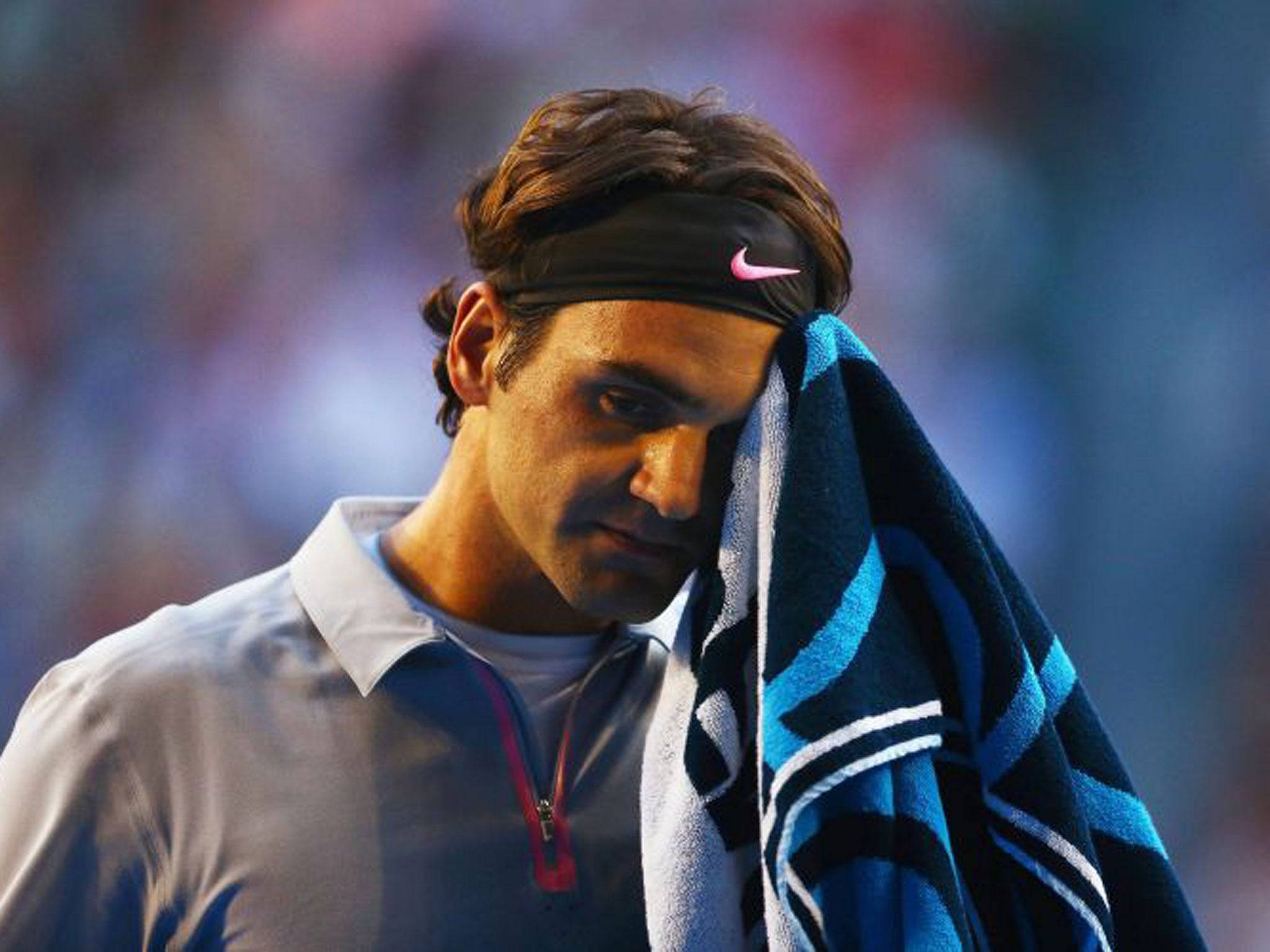Just as in New York, mental strength backs up British No 1's ability
Andy Murray beats Roger Federer 6-4, 6-7, 6-3, 6-7, 6-2

Your support helps us to tell the story
From reproductive rights to climate change to Big Tech, The Independent is on the ground when the story is developing. Whether it's investigating the financials of Elon Musk's pro-Trump PAC or producing our latest documentary, 'The A Word', which shines a light on the American women fighting for reproductive rights, we know how important it is to parse out the facts from the messaging.
At such a critical moment in US history, we need reporters on the ground. Your donation allows us to keep sending journalists to speak to both sides of the story.
The Independent is trusted by Americans across the entire political spectrum. And unlike many other quality news outlets, we choose not to lock Americans out of our reporting and analysis with paywalls. We believe quality journalism should be available to everyone, paid for by those who can afford it.
Your support makes all the difference.The parallels with Andy Murray's victory over Novak Djokovic in the US Open final were striking. Once again he made a superb start, once again his opponent fought back to level the match at two sets apiece and once again the Scot stood firm to take a grip on the decider.
Murray's 6-4, 6-7, 6-3, 6-7, 6-2 victory over Roger Federer in today's Australian Open semi-final provided further evidence that the world No 3 has added mental strength to the ability that has rarely been in doubt. Murray twice put behind him the disappointment of losing tie-breaks to secure the victory that his outstanding display so richly deserved.
It is rare for any opponent to out-serve Federer or to hit more winners but the statistics in Murray's four-hour victory told their own story. The Scot has probably never served so consistently well. He hit 21 aces to Federer's five thanks to a combination of power and clever variations of spin and placement. Federer repeatedly struggled to hold serve, while Murray's tally of winners (62 to Federer's 43) and unforced errors (47 against 60) were testament to his domination.
Fears that Murray might be at a disadvantage in playing his first evening session match here this year – Federer had played his previous four at night – were rapidly allayed. It was a cool summer's evening with a light breeze. Most of the excited spectators in the Rod Laver Arena were on Federer's side, but Murray quickly silenced them.
The British No 1 was on top from the start, forcing a break point in Federer's first service game. The Swiss, having struggled against Murray's counter-punching game so often in the past, clearly wanted to avoid too many baseline battles, but he was soon forced back as Murray repeatedly punished his early forward charges with thumping passing shots. Federer played chip-and-charge on the first point of Murray's opening service game, only to be beaten by a superb cross-court backhand winner.
While Murray quickly found his serving range and saved the only break point against him in the first set with an ace, Federer was often in trouble on his own serve. Murray forced seven break points in the first set, which he took with a single break in the third game.
Murray did not look in any sort of trouble until the second set tie-break, in which Federer capitalised on three forehand errors to go 4-1 up. Murray fought back to 5-5, only for Federer to create set point with a brilliant backhand cross-court winner after Murray failed to put away a "slam dunk" smash. When Murray put a forehand long on the next point the Scot must have wondered how he had let the Swiss back into the match.
Normal service was quickly resumed, however, as Murray took the third set with a single break in the sixth game. Federer, frustrated by Murray's brilliance, became increasingly tetchy in the fourth set, particularly after the Scot retrieved an early break, which he had conceded by playing his only loose game of the night.
Murray broke again to lead 6-5 and went within two points of victory when he served for the match, but Federer played a wonderful game, full of attacking brilliance, to level at 6-6. The Swiss again dominated the tie-break, which he took by winning five points in a row from 2-2.
However, just as he had after Djokovic had levelled the match after being two sets down in New York, Murray began the decider in emphatic fashion, quickly establishing a 3-0 lead. When Federer served at 2-5 the Swiss saved the first match point with a service winner, but on the second he hit a forehand long. At the fourth attempt, Murray had finally beaten the game's greatest player in a Grand Slam tournament.
Join our commenting forum
Join thought-provoking conversations, follow other Independent readers and see their replies
Comments